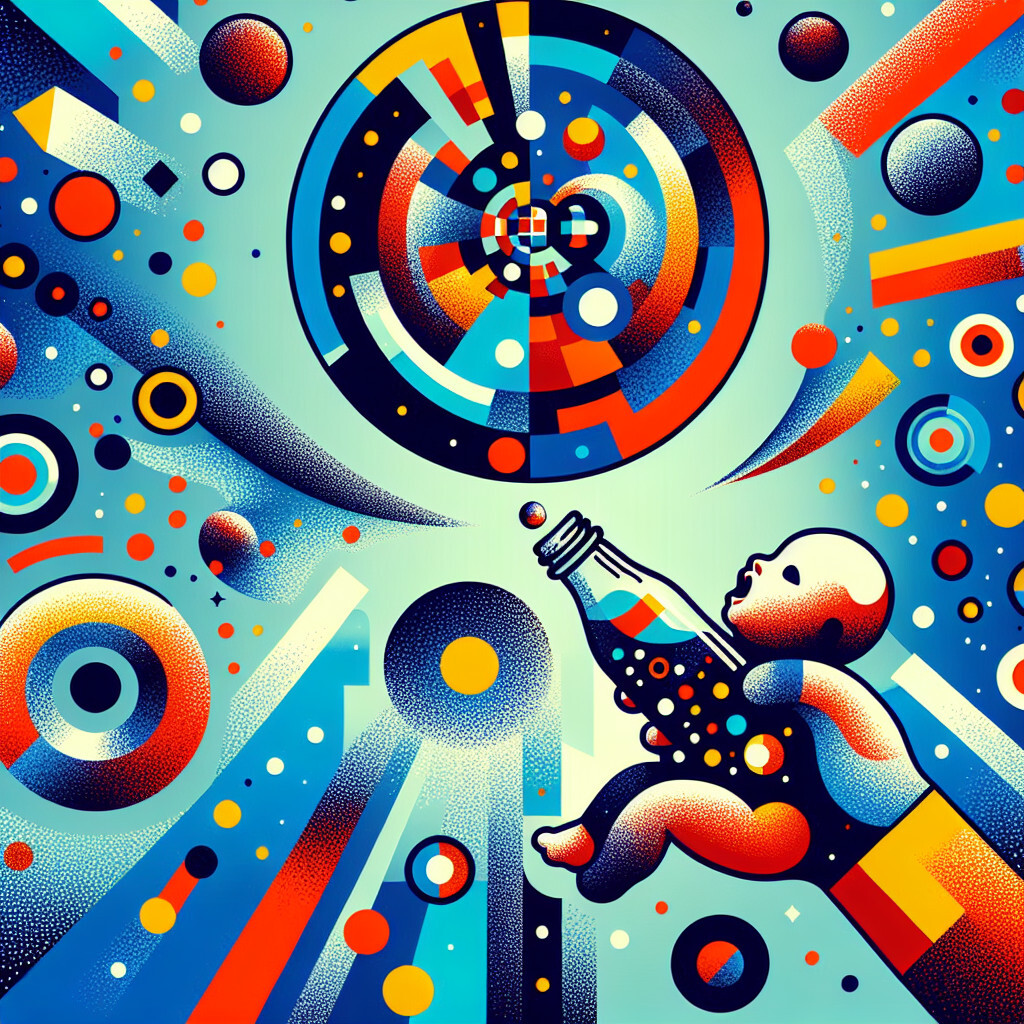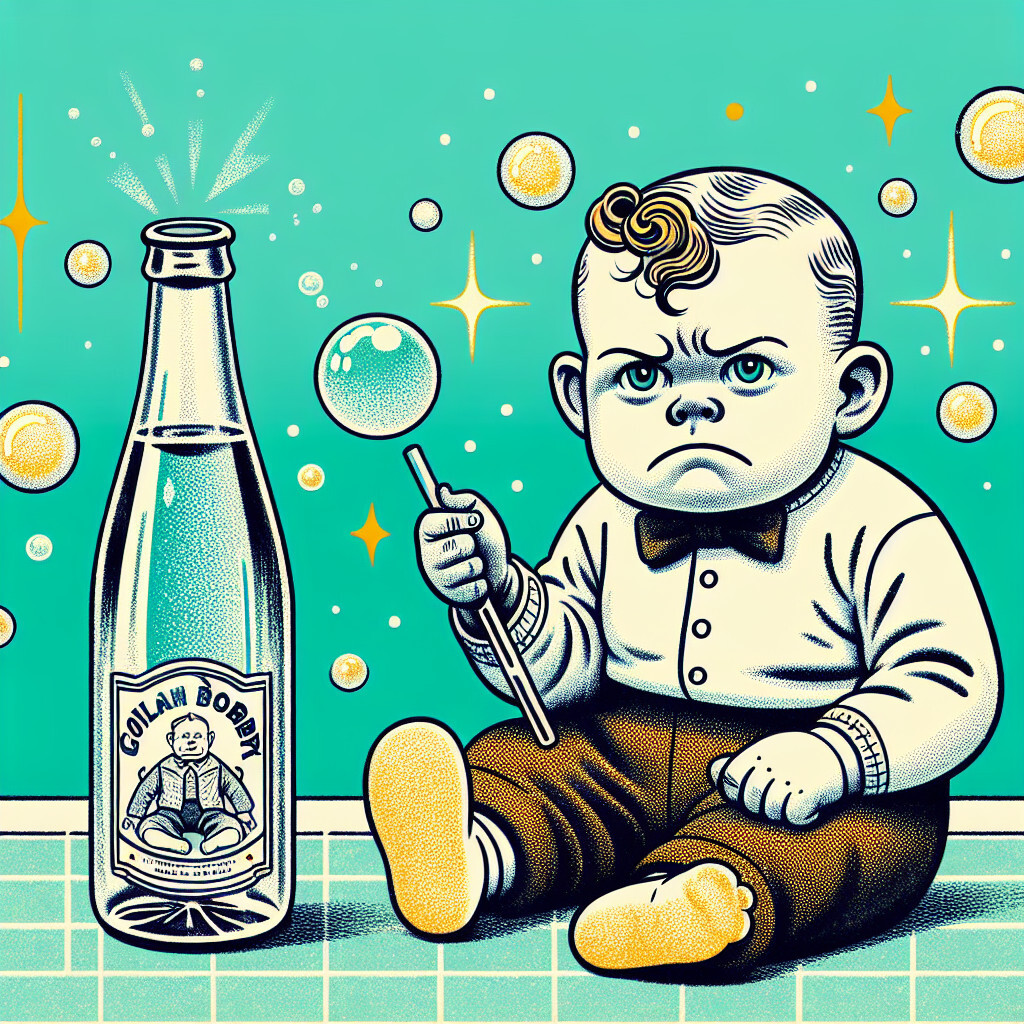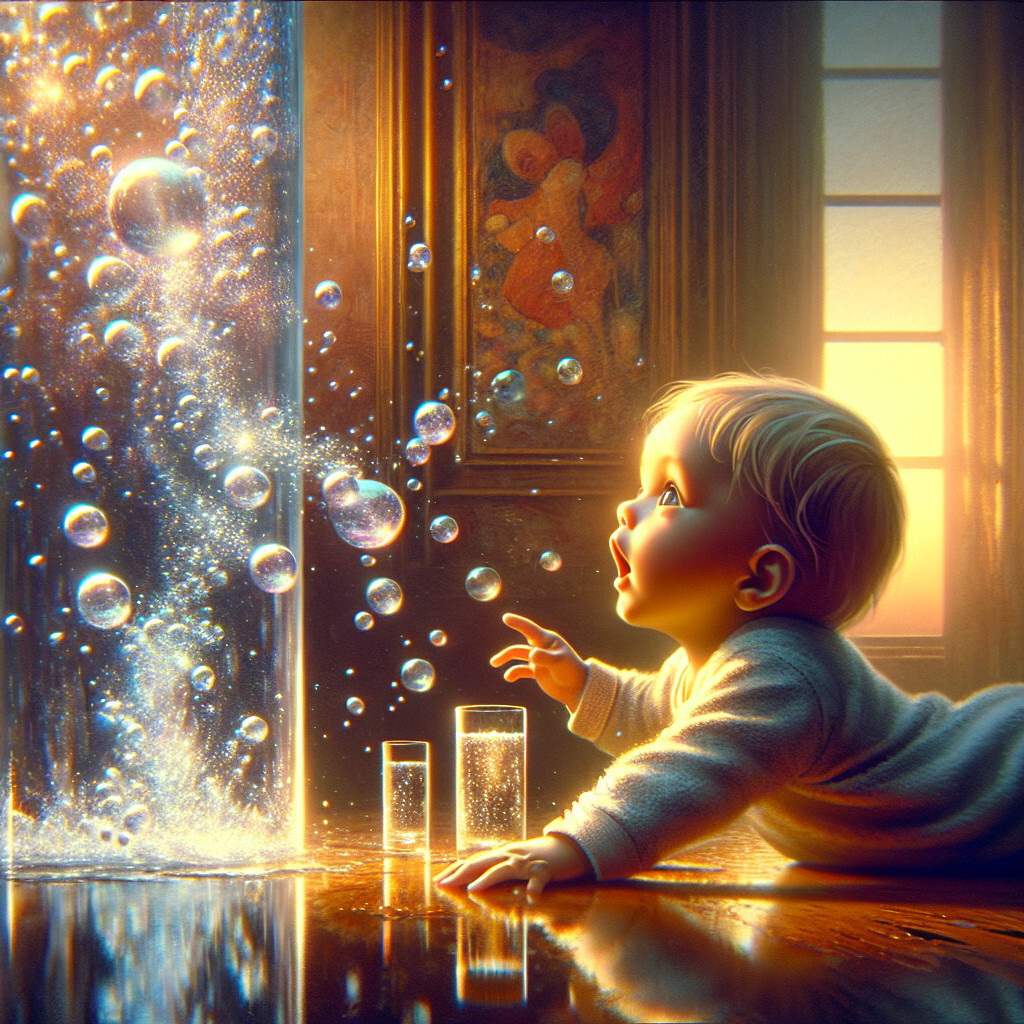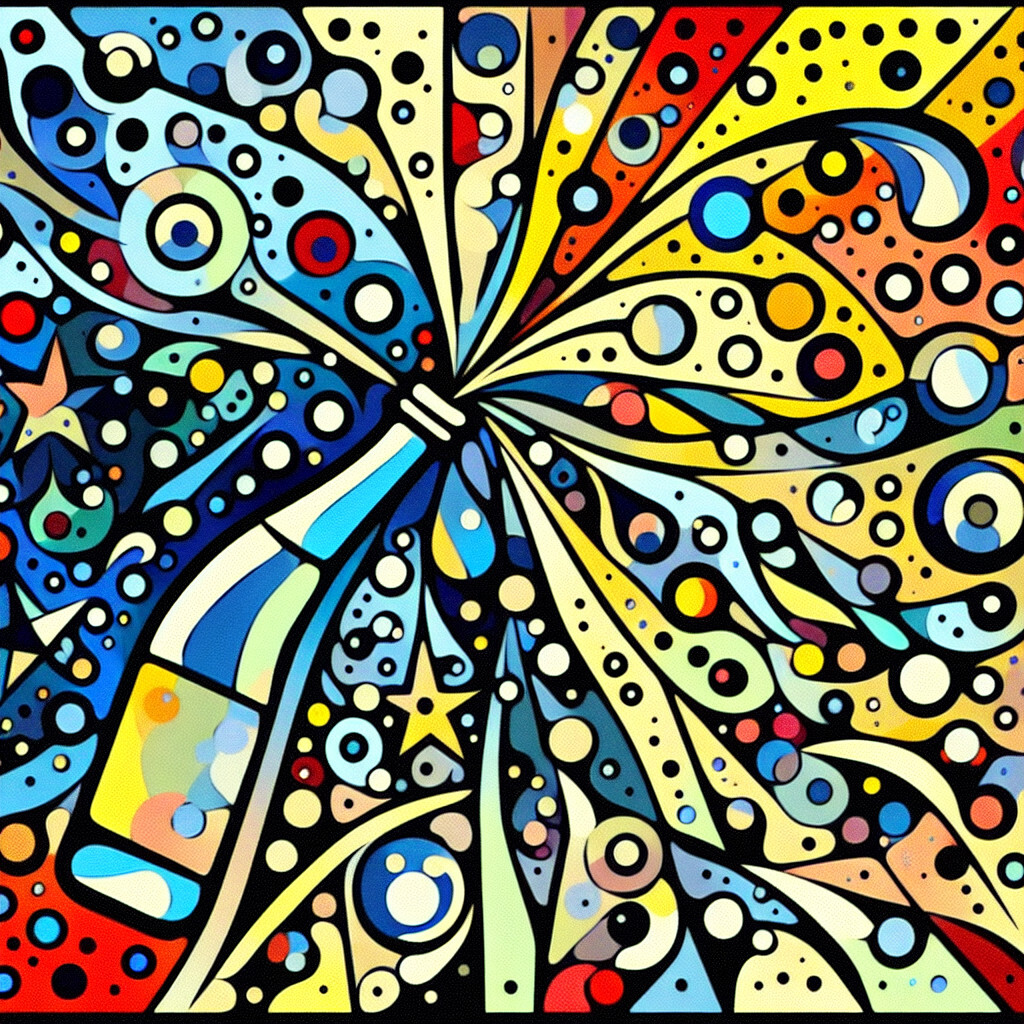-
Table of Contents
“Sparkling Water: Not a Baby’s Best Bubbly!”
Introduction

Sparkling water is not recommended for babies due to its high carbonation levels which can lead to discomfort and digestive issues in their sensitive systems. The bubbles caused by carbonation can cause gas and bloating, potentially leading to colic and excessive crying. Additionally, the acidity in sparkling water can harm a baby’s developing teeth. Therefore, it’s best to stick to breast milk, formula, or plain water for hydration needs in babies.
The Hidden Dangers of Sparkling Water for Babies
The Hidden Dangers of Sparkling Water for Babies
In recent years, sparkling water has gained popularity as a refreshing, calorie-free alternative to sugary drinks. However, while it may be a healthier choice for adults, it is not recommended for babies. This article aims to shed light on the hidden dangers of sparkling water for babies.
Firstly, sparkling water is carbonated, meaning it contains dissolved carbon dioxide gas. This carbonation can cause discomfort and bloating in babies. Their digestive systems are still developing and are not equipped to handle the gas produced by carbonated drinks. This can lead to discomfort, excessive burping, and even colic in some cases.
Moreover, the acidity of sparkling water can be harmful to a baby’s teeth. Although it does not contain sugar, sparkling water is more acidic than still water. This acidity can erode the enamel of baby teeth, leading to dental problems in the future. Babies’ teeth are more susceptible to decay than adult teeth, so it’s crucial to limit their exposure to acidic substances.
In addition, the bubbles in sparkling water can fill up a baby’s stomach, making them feel full. This can potentially interfere with their feeding schedule and nutritional intake. Babies need a diet rich in nutrients for their growth and development, and feeling full from drinking sparkling water could lead them to eat less than they need.
Furthermore, sparkling water does not offer any nutritional benefits for babies. Unlike breast milk or formula, which are packed with essential nutrients, sparkling water is essentially empty calories. It does not provide any of the vitamins, minerals, or other nutrients that babies need for healthy growth and development.
It’s also worth noting that while sparkling water is typically free of added sugars, some brands do add flavorings or sweeteners. These can be harmful to babies, leading to an increased risk of obesity and tooth decay. Even if the sparkling water is labeled as “natural” or “unsweetened,” it’s best to avoid giving it to babies.
Lastly, introducing sparkling water at a young age could potentially set up unhealthy drinking habits in the future. Babies who get used to drinking carbonated beverages may develop a preference for them, which could lead to a higher consumption of sugary, unhealthy drinks as they grow older.
In conclusion, while sparkling water may be a healthy choice for adults, it is not suitable for babies. Its carbonation can cause digestive discomfort, its acidity can harm baby teeth, and it can interfere with babies’ nutritional intake. Moreover, it does not provide any nutritional benefits, and some brands may contain harmful additives. Therefore, it’s best to stick to breast milk or formula for babies under one year, and introduce plain, still water gradually after that. As always, if you have any concerns about your baby’s diet, it’s best to consult with a pediatrician or a registered dietitian.
Why Sparkling Water is Not Suitable for Your Baby’s Diet
Sparkling water, also known as carbonated water, has gained significant popularity in recent years. Its refreshing taste and fizzy sensation have made it a preferred choice for many adults. However, when it comes to infants and toddlers, the question arises: is sparkling water bad for babies? The answer, in short, is yes. Sparkling water is not suitable for your baby’s diet, and there are several reasons why.
Firstly, the carbonation in sparkling water can cause gas and bloating in babies. Their digestive systems are still developing and are not equipped to handle the bubbles that come with carbonated beverages. This can lead to discomfort, fussiness, and even colic in some cases. Moreover, the high acidity levels in sparkling water can upset a baby’s delicate stomach, leading to acid reflux or heartburn.
Secondly, sparkling water can be harmful to a baby’s oral health. The carbonation process involves the addition of carbon dioxide, which when combined with water, forms carbonic acid. This acid can erode the enamel on a baby’s teeth, leading to dental problems such as cavities and tooth decay. This is particularly concerning as baby teeth set the stage for adult teeth and overall oral health.
Furthermore, while sparkling water is often marketed as a healthier alternative to sugary drinks, it is not a suitable replacement for the beverages that should make up the majority of a baby’s liquid intake: breast milk, formula, or water. These provide essential nutrients that are crucial for a baby’s growth and development, which sparkling water does not offer.
Additionally, the introduction of sparkling water at an early age can lead to a preference for fizzy drinks. This can pave the way for a fondness for sugary, carbonated beverages in the future, contributing to an unhealthy diet and potential weight issues.
Lastly, it’s important to note that not all sparkling waters are created equal. Some contain added sugars, artificial sweeteners, or caffeine, all of which are not recommended for babies. Even those labeled as ‘natural’ or ‘flavored’ can contain ingredients that are not suitable for a baby’s diet.
In conclusion, while sparkling water may be a refreshing beverage choice for adults, it is not suitable for babies. Its potential to cause digestive discomfort, dental issues, and an early preference for fizzy drinks, along with its lack of essential nutrients, make it a poor choice for your baby’s diet. Instead, stick to breast milk, formula, or water to ensure your baby is getting the hydration and nutrients they need. As always, if you have any concerns about your baby’s diet or hydration, it’s best to consult with a pediatrician or a registered dietitian. They can provide guidance based on your baby’s specific needs and help you make the best choices for their health and well-being.
Understanding the Negative Effects of Sparkling Water on Infant Health
Sparkling water, also known as carbonated water, has gained significant popularity in recent years due to its refreshing taste and perceived health benefits. However, while it may be a healthier alternative to sugary sodas for adults, it is not recommended for infants. This article aims to shed light on the potential negative effects of sparkling water on infant health.
Firstly, it is important to understand that the digestive system of an infant is not fully developed and is, therefore, more sensitive than that of an adult. Sparkling water contains carbon dioxide, which when consumed, can lead to the production of excess gas in the stomach. This can cause discomfort, bloating, and even colic in babies. Colic is a condition characterized by severe, often fluctuating pain in the abdomen that is caused by the spasmodic contraction of the intestines. This can be particularly distressing for infants, who are unable to communicate their discomfort.
Moreover, the acidity of sparkling water can also pose a problem. The process of carbonation makes sparkling water more acidic than regular water, which can potentially harm a baby’s developing teeth. Although baby teeth are temporary, they play a crucial role in helping the child chew food and speak clearly. They also hold space in the jaws for the permanent teeth. Therefore, maintaining the health of these primary teeth is of utmost importance.
In addition, the bubbles in sparkling water can make a baby feel full quickly, reducing their appetite for nutrient-rich foods and breast milk or formula. This can lead to inadequate nutrient intake, which is detrimental to the rapid growth and development that occurs during infancy. It is crucial during this stage of life that babies receive all the necessary nutrients for optimal growth and development.
Furthermore, the introduction of sparkling water can also create a preference for flavored or sweetened beverages in the future. This can lead to unhealthy dietary habits as the child grows older, increasing the risk of obesity and related health problems. Therefore, it is advisable to encourage a preference for plain water from a young age to foster healthy dietary habits.
Lastly, it is worth noting that the American Academy of Pediatrics advises against giving any type of sugary or carbonated beverages to infants. They recommend exclusive breastfeeding for the first six months, followed by the introduction of solid foods along with continued breastfeeding until at least 12 months. After this period, plain water can be gradually introduced.
In conclusion, while sparkling water may be a refreshing beverage choice for adults, it is not suitable for infants due to potential negative effects on their digestive system, dental health, nutrient intake, and future dietary habits. It is always advisable to consult with a pediatrician or a registered dietitian before introducing any new foods or beverages to an infant’s diet. This will ensure that the baby’s nutritional needs are being met and that they are developing healthy eating and drinking habits from the start.
Debunking the Myth: Is Sparkling Water Really Safe for Babies?
The topic of whether sparkling water is safe for babies has been a subject of debate among parents and pediatricians alike. Many people believe that sparkling water, also known as carbonated water, is a harmless alternative to sugary drinks for their little ones. However, the truth is not as straightforward as it may seem. This article aims to debunk the myth and shed light on the potential risks associated with giving sparkling water to babies.
Sparkling water is essentially water that has been infused with carbon dioxide under pressure. This process gives the water its characteristic fizz and tangy taste. While it may seem like a fun and refreshing beverage for adults, it may not be suitable for babies. The primary reason for this is the high acidity level in sparkling water. The carbonation process increases the water’s acidity, which can potentially harm a baby’s developing teeth and sensitive stomach lining.
Babies have a naturally occurring layer of enamel on their teeth, which is significantly thinner and more vulnerable than that of adults. The high acidity in sparkling water can erode this enamel layer, leading to dental problems such as tooth decay and cavities. Moreover, the carbonation can also cause discomfort and bloating in babies, as their digestive systems are still developing and may not be able to handle the gas produced by the carbonation.
Another concern is the potential choking hazard posed by the bubbles in sparkling water. Babies are still learning to swallow and control their gag reflex, and the bubbles in sparkling water can cause them to choke or cough. This risk is particularly high in babies under one year of age, who are still mastering the art of swallowing.
Furthermore, while sparkling water is often marketed as a healthier alternative to sugary drinks, it is important to note that it does not offer any additional nutritional benefits over regular water. Babies need a balanced diet to support their rapid growth and development, and water plays a crucial role in this. However, the nutrients that babies need cannot be obtained from sparkling water.
In light of these potential risks, it is advisable for parents to stick to giving their babies regular, non-carbonated water. The American Academy of Pediatrics recommends that babies under six months should only consume breast milk or formula, as these provide all the necessary nutrients for their growth and development. After six months, small amounts of water can be introduced, but it should be plain, non-carbonated water.
In conclusion, while sparkling water may seem like a harmless and fun beverage, it is not recommended for babies due to its high acidity, potential choking hazard, and lack of nutritional benefits. As always, when it comes to your baby’s health and nutrition, it is best to consult with a pediatrician or a registered dietitian. They can provide personalized advice based on your baby’s age, growth, and development. Remember, what is suitable for adults may not always be suitable for babies.
Q&A
1. Question: Is sparkling water safe for babies?
Answer: No, it’s not recommended to give babies sparkling water. The carbonation can cause discomfort and bloating.
2. Question: Can sparkling water harm a baby’s developing teeth?
Answer: Yes, flavored sparkling water often contains citric acid which can erode tooth enamel, even in babies.
3. Question: Why shouldn’t babies drink sparkling water?
Answer: Babies shouldn’t drink sparkling water because it can cause gas and discomfort, and it doesn’t provide the necessary nutrients found in breast milk or formula.
4. Question: Can sparkling water replace regular water in a baby’s diet?
Answer: No, sparkling water should not replace regular water in a baby’s diet. Babies need plain water for hydration, in addition to breast milk or formula for nutrition.
Conclusion
In conclusion, sparkling water is not recommended for babies because it may contain added sugars, artificial flavors, and high levels of sodium. Additionally, the carbonation can cause discomfort and bloating in babies.





